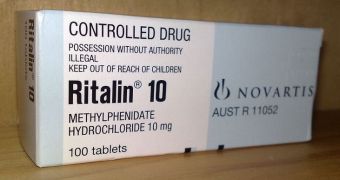In a bid to make more sense of how attention deficit hyperactivity disorder (ADHD) emerges, experts have recently conducted a new study on twins. They found that both nature (genes) and nurture (the environment) are involved in this, and that their interplay is remarkably complex.
For years, the scientific community has been trying to make more sense of the causes of ADHD, but thus far experts were unable to draw up a clear conclusion. What became clear after so many studies was only that both genes and the environment play a significant role in triggering the condition.
In the new study, experts from the Case Western Reserve University (CWRU), led by researcher Lee A. Thompson, PhD, analyzed numerous pairs of twins, in a bid to tease out the different factors that may be contributing to allowing the disorder to develop.
What the research uncovered was that a complex mixture of genes and environmental factors were at play. It was also found that it's incredibly difficult to tell the two apart, and identify precisely the extent to which each of them contributes to this, PsychCentral reports.
Experts also looked for the influence that these two sets of factors had on reading and mathematics ability. They learned that genes were more tightly linked to reading abilities, whereas nurture was more intimately connected to math abilities.
“The majority of the twins used in the study don’t have ADHD. We are looking at the continuum of the behavioral symptoms of ADHD – looking at individual differences – not a disorder with an arbitrary cutoff,” Thompson explains further.
The expert adds that such a continuum is distributed on a Bell curve, with the average representing the tip of the curve, whereas the exceptions make up both ends. Those with disabilities – for example in maths and reading – can be found at the extreme left.
Details of the new work appear in Volume 21 of the esteemed journal Psychological Science. During this investigation, Thompson and his group analyzed some 271 pairs of both identical and fraternal twins.
In future studies, experts plan to take a closer look at the correlations that develop between poor academic achievements and ADHD symptoms. This will help scientists identify environmental elements that lead to these negative influences.
Once these are eliminated, the children suffering from this disorder could conceivably improve their school and academic performances significantly, the experts conclude.

 14 DAY TRIAL //
14 DAY TRIAL //